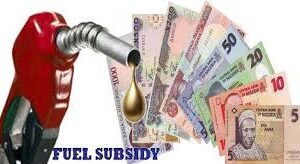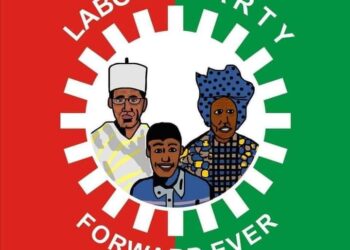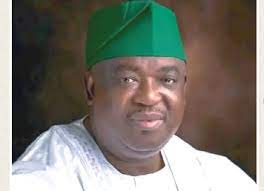EMEKA NZE recalls the overwhelming empathy from Nigerians to President Goodluck Jonathan due to his ‘shoeless’ upbringing which he first mentioned in 20011 at the presidential campaigns has fast receded. He writes that the former ‘shoeless boy’ has long joined former leaders who subjected citizens to hardship of unprecedented proportion in a policy somersault analysts tag ‘austerity measure.’
Now that 2015 is almost here, there is a consensus of the mind amongst Nigerians that President Goodluck Jonathan’s administration instead of distinguishing itself as a government of the ‘shoeless’ lot that he personifies, has plummeted into the same plutocratic hue of previous governments which uncharitably added to the riches of the well-to-do and subjected the ordinary people to mere scavenging. Stripped of any partisan leaning, the ordinary people in the society are yet to fathom why there is no marked difference between the government’s of a self-professed, whether-beaten street urchin who, in a providential ascendancy became the president of the country and those of a jackboot orientation, whose considerations were more of peer group elevation.
Instead of carving out a niche for himself and enhancing the lots of the commoners who share in his boyhood experience, he is swallowed in the cravings of power- to placate only the elite, enhance the fortunes of the rich, safeguard the wealth of the corrupt, perpetuate more corruption and retain the status quo. The ordinary citizens are therefore questioning the merits of a self-professed ‘shoeless boy’ who has failed to make the change or even reduce the yoke of despicably impoverished populace.
It gives goose pimples to contemplate that in a government of a shoeless president, kerosene which is the only source of heat among the commoners has incredibly remained N150.00k per litre as against the hypocritical N50 official pump price. By the calculations of Nigerians, it is better to have a silver-spooned leader who empathises with the suffering people than to have one who used them to climb the pinnacle power and forget the days of his humble beginning. When Jonathan dawned on Nigerians after the death of President Umaru Yar’ Adua, there appeared a bright lining in sky symbolizing the dawn of a new era. There was erroneous assumption that “our own has taken over” to undo the unsavoury footprints of military dictatorship and their cronies.
Unfortunately, six years down the line, Nigerians are still groaning under the yoke of exorbitant fuel prices even at a time the world is bemoaning the crash in the price of crude at the international market. It was to the credit of President Yar’Adua that he showed enormous courage to bring down the prices of petroleum products increased at twilight of Obsanjo’s regime. Nigerians cheered the then new administration and expectations grew that his successor would continue with the increased momentum of kindness through reactivation of the ineffectual refineries.
Regrettably, hopes have been dashed and expectations gone awry. Instead, the administration has progressed in error by running at the hare and hunting at the hounds. More often than not, it has put up a feeble and cheap argument that only the removal of oil subsidy can guarantee steady flow of petroleum products to the people. According to the government, subsidy enriches the importers of refined products at the expense of the people but it is remarkable that only the president’s men, those who contribute enormously to the president’s campaigns in a quid pro quo arrangement, are those reposed with the responsibility of importing the products and getting stupendous riches.
A president who should have held accountable past leaders and their cronies who made it difficult for many Nigerians, including himself, to go to school with shoes in a country which flowed and still flows with milk and honey, where uniforms, sandals, books and other perquisites of education ought to have been procured at no fee, instead of living up to his avowals, cued amongst past leaders who raped the country to their own advantage and became demi-gods in their communities. Even among his kitchen-cabinet, spendthrifts and common thieves indicted by probe panels are allowed to clinch to their office. The anti-graft bodies have been skewed to the level of toothless bulldogs, left to grovel for operational funds at the doorstep of the presidency. Suspicions of alleged compromise among its officers have been rife. For instance, the three bank accounts of a particular governor of one of the north central states that were allegedly frozen by the EFCC on allegation of financial impropriety were immediately reopened after the governor accepted willy-nilly to pay a certain amount of money. In the Obasanjo regime, both the EFCC and ICPC were very active, which reduced the tempo of corruption among public officers and civil servants. Today, the chickens have gone to roost and many government officials are on the loose dipping down the deep and looting as much as they can while the former shoeless boy appears to be merely looking on.
If not that the powers at play nipped the ambitions of the president’s men in the bud during the primary elections, they would have been more poised to rape the states they aspired to lead. Nigerians wondered at the mass resignation of the President’s men – ministers – who sought to lead their states but were rejected by their people. The question has been: how many of them aspired to the exalted office in their states on or before 2011 when the president appointed them ministers? Nigerians are worried that these ‘thieves’ suddenly sought to become the first citizens of their states after raping their ministries bare. For the likes of Labaran Maku who sought for power in Nassarawa state, his stinginess has been described as legendry and it was not in doubt that he would lose the primary elections.
Across the country it was indeed the doomsday of the president’s men who entered the race to become governors of their states with so much confidence but God’s handiwork seemed to have brought them to their knees. Prof Onyebuchi Chukwu lost to the deputy governor, Uche Umahi supported by the Secretary Government of Federation, Anyim Pius Anyim, a beneficiary of a position allotted to the Igbo race but his agenda has been rather selfish. Sokoto state deputy governor, Shagari said he has been patient enough or so he said, but he lost to the forces dictated by the former governor of the state Attahiru Bafarawa who recently moved to the PDP from the APC. Worgu, former labour minister, could not make it after his lacklustre performance in the Labour Ministry. In Lagos, Obanikoro lost as Olabode George pulled the rug off his feet with the emergence of his crony Jimi Agbaje. At the last count, only Barr Nyesom Wike and Hon Emeka Ihedioha were able to pull through in the primary elections. Ihedioha’s fate, though, is still hanging, as another contender is contesting the results in Imo state; Nwike is said to have worked very hard even though his riverside brothers are kicking. Although many Nigerians claim it is a suggestion of non-interference by President Jonathan, others hold the view that the president did not have enough gusto to carry his men through.
Jonathan’s siddon look attitude can be seen in governors like Gabriel Suswam – allegedly owing workers in the state for over 14 months – and still prides as the governor when he should have buried his head in shame. The germane question is: should such a governor be allowed to go to the Senate after raping his state? Who will now settle the bills he refused to pay? Many citizens of the country are worried that Theodore Orji will not pay for his sins as the cry of the indigenes of Abia will not go beyond the roofs. Who will listen to the hue and cry of the Delta indigenes for the neglects by their governor who merely toed the steps of his cousin and the former governor of the state now in prison outside the country? Nigerians are waiting for the intervention of foreign countries in bringing our governors to book in the manner they did to Chief James Ibori, for their past sins so that they can learn a hard lesson that governance is always for the people. If the President’s men had done well while serving the country, the people of their states would have risen to clamour for them to govern their states but they perceived their entry into the race was more guided by the desire to corner the resources of the state.
In the power sector, Jonathan and his acolytes have always boasted as a government which unbundled the sector for efficiency. If not for selfish considerations, why was sector bequeathed or sold to companies that find it difficult to give light to Nigerians? In Abuja for instance, areas that need transformers are yet to have them and many communities are either sharing light so that residents who have today will not get tomorrow? Why are Nigerians still depending on politicians to supply them transformers? A community that has not had light for an upward of three months still suffers to pay the bills it did not incur; in the past three months it did not have light. Why? The questions are endless and can only find answers that those reposed with the responsibility to provide common utilities like light cannot deliver on their avowals. At the local government areas, Nigerians still bemoan no good roads, no portable water, difficulty in accounting for revenues generated and threats by those in custody of the third tier governments. Who even checks them? What citizens are faced with is disturbances of sirens when they are in the neighbourhood often mistaken for ambulances which sends shivers of a possible death to the spines of the community members.
The feelings of the citizens especially those who grew up in a similar milieu with the President is that after six years, light would have been regular. Kerosene sold for a paltry sum; fuel will sell for at worst N50 below the price of N65.00 that his boss Yar Adua pegged it. From all indications the existence of the commoners in Nigeria seems to be to the leaders what a red rag is to the bull. Nigerians are still at a loss that the shoeless man has not impacted alleviating their sufferings in the last 6 years when he mounted the pinnacle of power.



